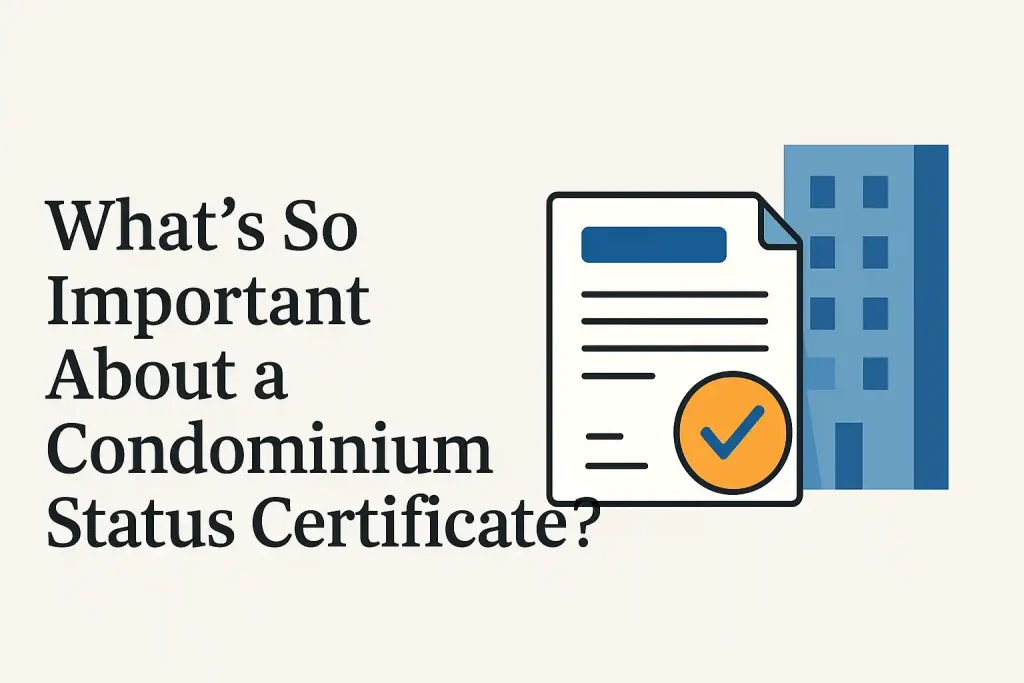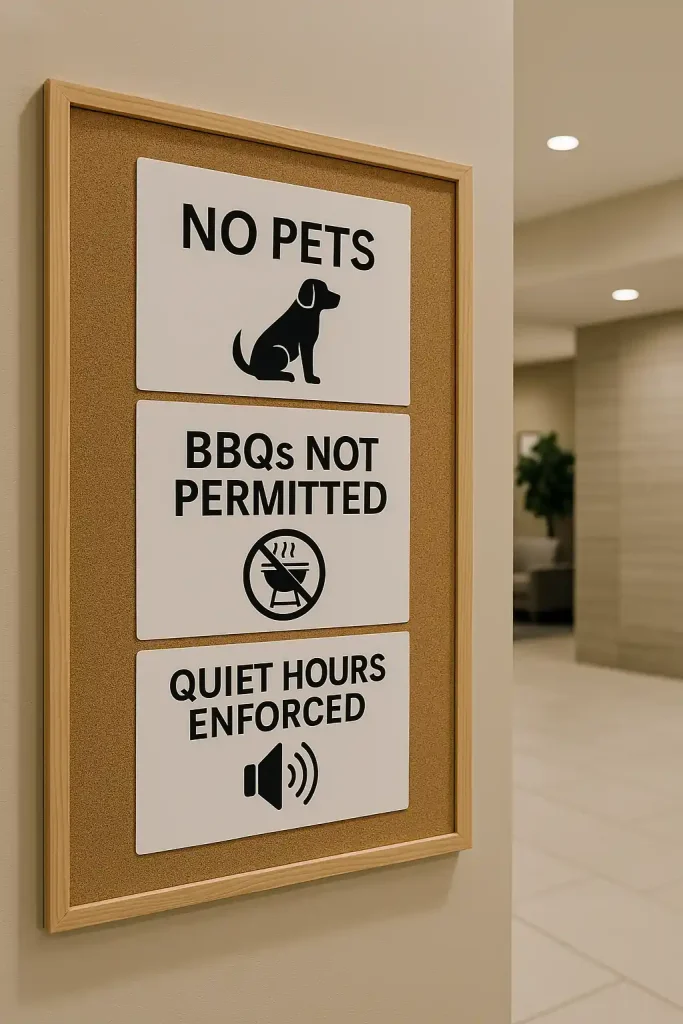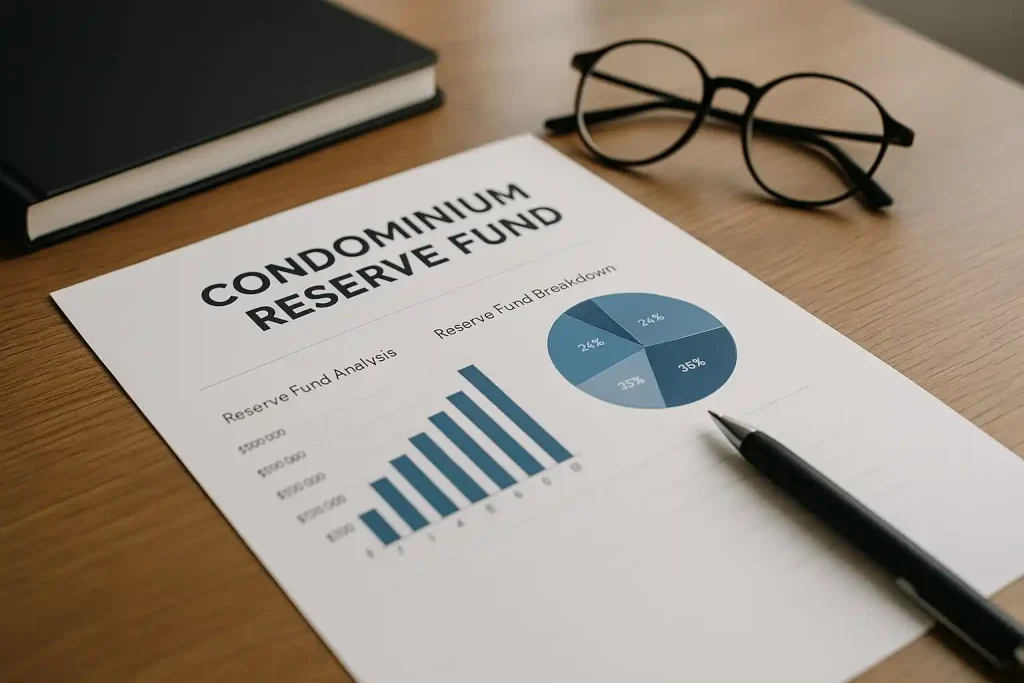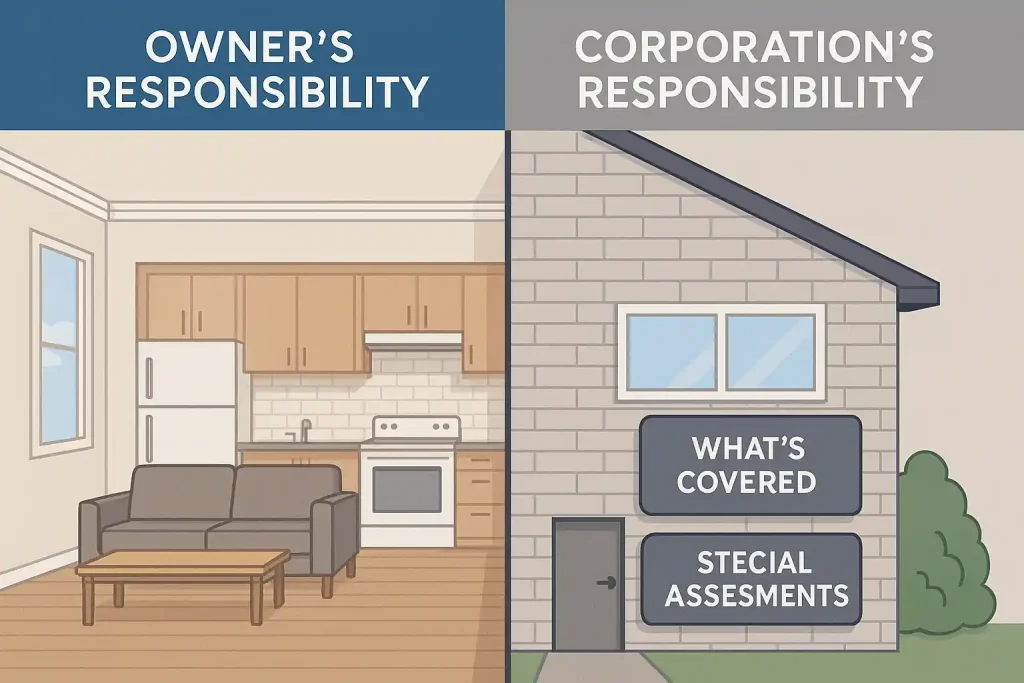
Buying a condominium isn’t quite like buying a house. When you purchase a condo, you’re not just acquiring a unit; you’re buying into a shared community governed by a set of documents, budgets, rules, and long-term obligations. One of the most important tools for evaluating a condo purchase is the Status Certificate.
This document offers a detailed snapshot of the condominium corporation’s financial and legal health, governance, and any potential risks for buyers. Below are the key questions every buyer should consider—and which the Status Certificate is designed to help answer.
Pets and Lifestyle Restrictions

Condos often have strict rules on lifestyle matters. Even if you don’t currently own a pet or plan to host summer BBQs, it’s important to understand the restrictions in place and how they may affect your future enjoyment of the property.
- Are pets allowed?
- What kinds of pets, and how many?
- Are leashes required in common areas?
- Are BBQs allowed on balconies or patios?
For a deeper understanding of pet ownership rules in Toronto condos, see our article on Navigating Pet Ownership Laws in Toronto Rentals and Condos.
Monthly Common Expenses and Financial Obligations
Common expenses, or maintenance fees, can vary widely and may increase after closing. It’s critical to understand what you’re committing to and whether the budget is sustainable.
- Are the common expenses disclosed in the listing accurate?
- What do the common expenses include?
- Are utilities extra?
- Is the seller in arrears of payment?
- Are common expenses expected to increase?
- Is the current budget sufficient to cover operating expenses?
Understanding these financial aspects is crucial. Our Condo Status Certificate Review service can help clarify these details.
Reserve Fund and Special Assessments

The reserve fund is the savings account used for major repairs and replacements. An underfunded reserve can lead to special assessments—unexpected charges levied on owners.
- Is the reserve fund sufficient?
- When was the last reserve fund study conducted?
- When is the next study due?
- Are there expected special assessments?
To learn more about reserve funds and their importance, refer to our article on Condo Law 101: Understanding Your Rights and Responsibilities as a Condo Owner in Toronto.
Property Management and Building Operations
Management quality can affect everything from building cleanliness to dispute resolution.
- Who is the property manager?
- Is the building well managed?
Occupancy, Rental Ratios, and Community Dynamics
The nature of the community affects resale value and overall living experience.
- Are many of the units leased to renters?
- Does the presence of renters affect your decision to buy?
Structural and Legal Matters

Legal disputes and structural issues can be costly and impact your investment.
- Is the building structurally sound?
- Is the condominium corporation suing anyone or being sued?
- What are the risks and financial exposure if litigation is unsuccessful?
For insights into avoiding legal pitfalls in real estate transactions, read our article on Avoiding Legal Pitfalls in Toronto’s Real Estate Market.
Insurance and Unit Boundaries
Understanding what is covered by the corporation’s insurance versus what you are responsible for insuring is vital.
- Is the building insured?
- What do you need to insure personally?
- Where do your unit boundaries end and common elements begin?
For a comprehensive overview of title insurance and its role in protecting your investment, see our article on A Comprehensive Guide to Title Insurance in Toronto Ontario.
Repair and Maintenance Responsibilities
Knowing your responsibilities can help you avoid disputes and plan financially.
- What repairs and maintenance are you responsible for?
Use and Ownership of Unit, Parking, and Locker
Ownership and usage rights of your parking and locker should be clearly defined.
- What use can you make of the residential unit, parking unit, and locker unit?
- Are your locker and parking spaces owned or exclusive-use common elements?
Governance and Oversight
Strong leadership matters. The board of directors influences budget decisions, rule enforcement, and long-term planning.
- Who is on the board of directors?
Final Thought: Make the Offer Conditional on Review
Every condo offer should be conditional on your lawyer reviewing the Status Certificate and being satisfied with its contents. This gives you the chance to walk away if something concerning appears—or to negotiate changes before it becomes a problem.
Need Help Reviewing a Status Certificate?
Ready To Hire A Lawyer? Get Started With Jay Today!We review Status Certificates daily for buyers across Toronto. If you’re buying a condo and want to make sure you know what you’re really getting into, get in touch with us. We’ll help you protect your investment and avoid surprises after closing.
